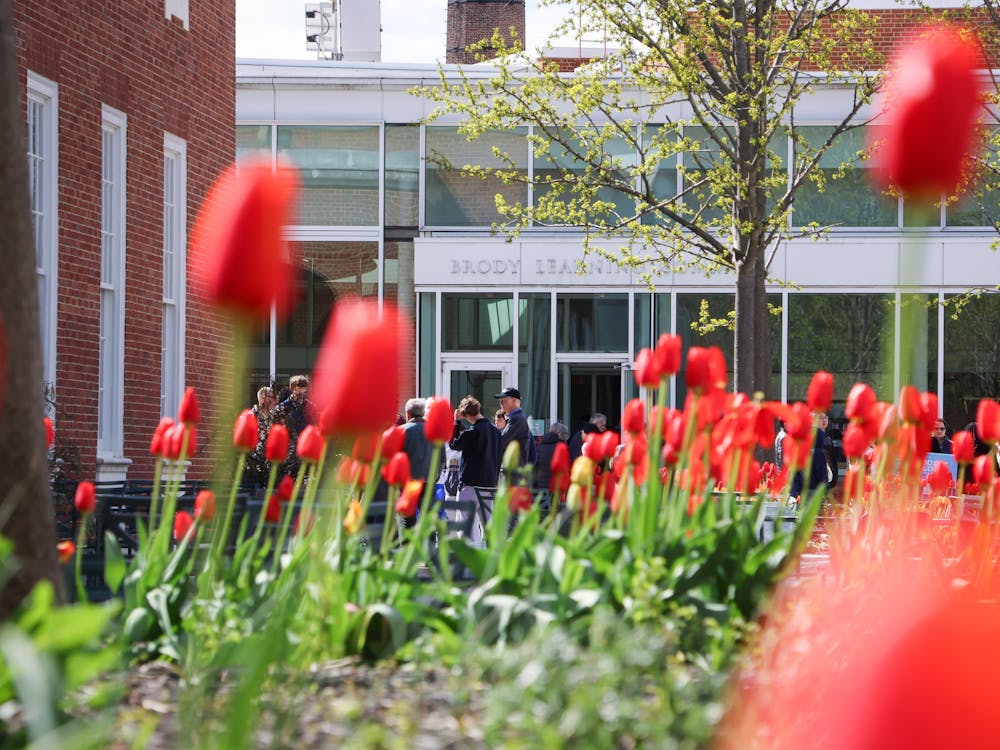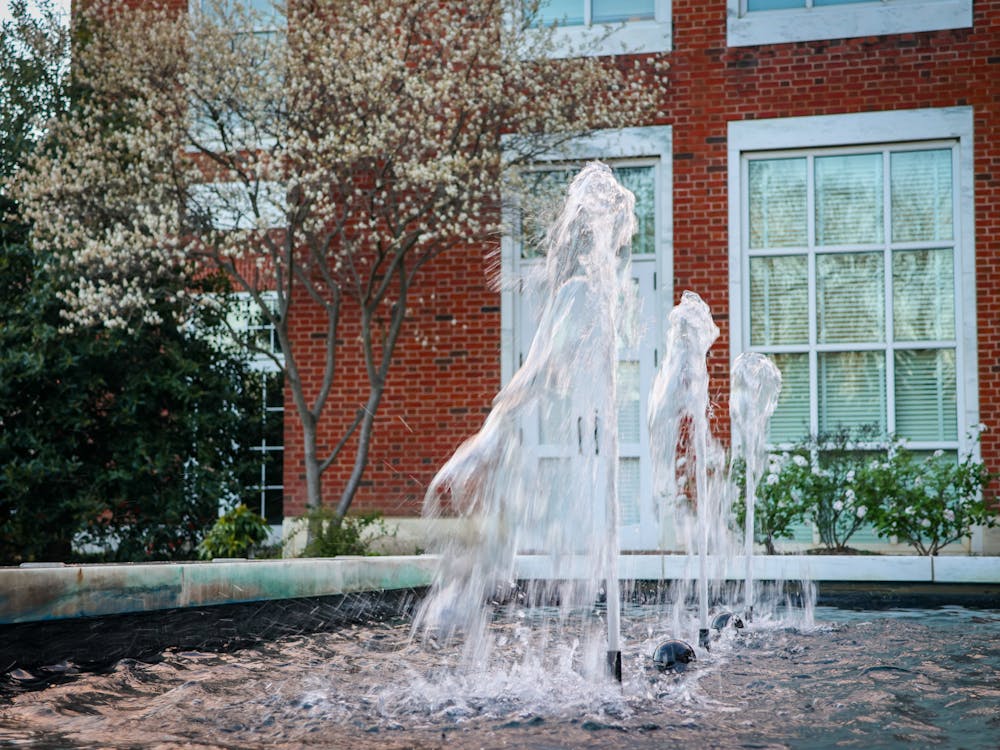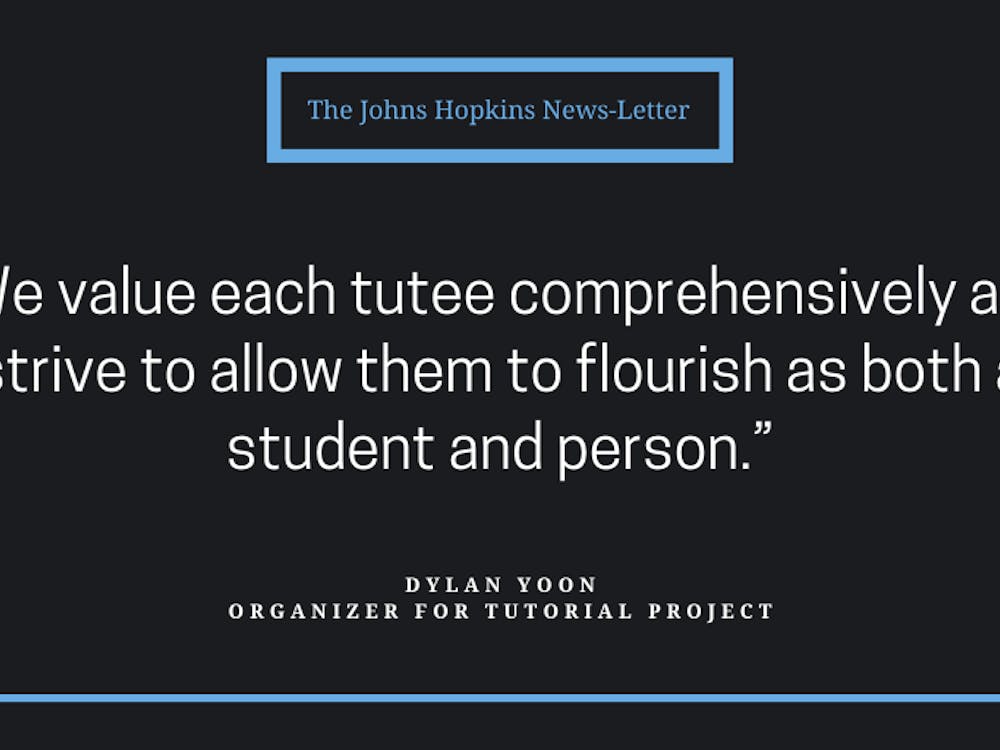The Inter-Asian Council (IAC) hosted Karen Gonzalez, the training and development manager for World Relief Immigration Clinic, a legal team that assists immigrants and their family members, on Monday.
Gonzalez spoke to Hopkins students about major issues facing refugees and immigrants in the United States.
She began the lecture by showing pictures of statues of human body parts. These statues were based in the French town of Marseille, which has a heavy immigrant community. Gonzalez believes these statues encapsulate an important part of the immigrant experience.
“All immigrants, no matter what, when they come here they do leave pieces of themselves. There’s always a part of them missing,” she said. “But then [when they come] back home after years and years, it doesn’t feel like home either.”
Additionally, Gonzalez said that people usually do not immigrate unless they are in desperate situations because it is difficult to restart life all over. She noted that this was a factor in her own family’s decision to immigrate from Guatemala to America.
“We moved to the U.S. in the 1980s because there was a civil war in Guatemala funded by the U.S.,” she said. “The same thing happened in El Salvador. So this created mass immigration.”
According to Gonzalez, undocumented immigrants are also particularly vulnerable in the U.S. because they fear going to police and getting deported. Gonzalez said undocumented immigrants are more likely to be victims of crime, which is something that she deals with firsthand at the World Relief Immigration Clinic.
“I never thought I would work in a job where I would meet a woman every day who was sexually assaulted,” she said.
Gonzalez told students that the legal process of immigrating to the U.S. can make people feel even more vulnerable. She gave an example of a green card holder who tried to fill out a voter registration form, thinking all those who received it could use it.
“Only U.S. citizens can do that,” she said. “He [later] applied for citizenship and was denied because he had misrepresented himself as a U.S. citizen, and that is a federal crime. And then his green card was taken away and he was deported.”
Gonzalez also noted that undocumented immigrants must obtain counterfeit social security cards in order to work in most places. She explained that social security cards are printed on simple pieces of paper as opposed to other government issued documents like passports or driver’s licenses, making them easy to counterfeit. She suggested that the U.S. may not prevent counterfeiting as extensively because it wants to maintain its tax revenue from undocumented immigrants.
Gonzalez also said that immigration can help cities like Baltimore by increasing their population and the number of available jobs. According to Gonzalez, as immigrants settle, they will spend money and pay for services, which creates more job opportunities for others in the community.
She added that most immigrants who come to the U.S. are doing so for the purpose of finding work. Because of this, she believes they fit in with the American traits of having a strong work ethic and a desire for upward mobility.
She also noted that while Latino immigrants are generally the most spoken about when it comes to undocumented immigration, many other communities are affected as well.
“One in five South Koreans is undocumented, and one in eight South Asians is undocumented,” Gonzalez said.
At the end of the lecture, Gonzalez described some of the potential ways to address the issue of undocumented immigrants in the U.S., such as providing them amnesty or conducting mass deportations. She highlighted comprehensive immigration reform as one of the most realistic solutions.
“[This] means securing the border and making an enforceable work authorization system,” Gonzalez said. “Make the social security card like the passport, like the driver’s license so that it is difficult to counterfeit. At the same time, make it easier to enter and work here lawfully because we have labor needs and we want to keep families together.”
Junior Daisy Duan, who is the director of the education outreach department for IAC, said she hoped the talk would raise awareness for the struggles immigrants face.
“For IAC this semester we have a theme of immigration and refugee issues. Given that November is Asian American and Pacific Heritage Month, we reached out to keynote speakers,” she said. “I think that this event was a good introduction for those who are not really aware of immigration issues or immigration history in general.”
Junior Evelyn Yeh, co-vice president of IAC, felt that Gonzalez’s talk was insightful.
“It was super informative,” Yeh said. “She was really prepared and obviously knew her stuff.”






















Please note All comments are eligible for publication in The News-Letter.